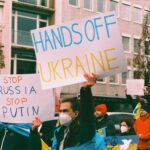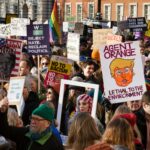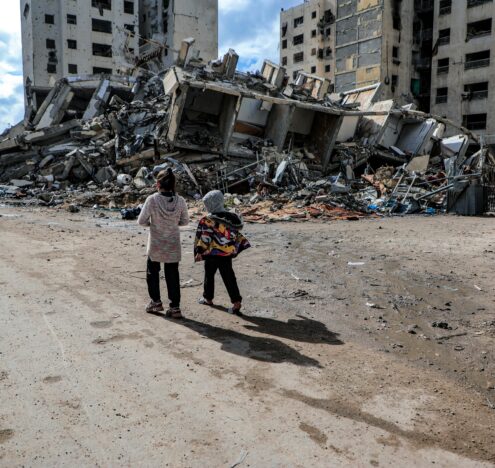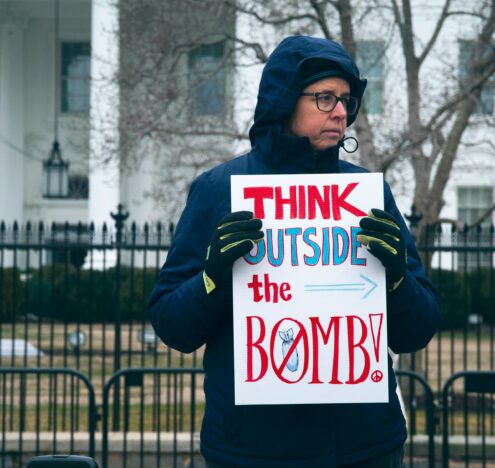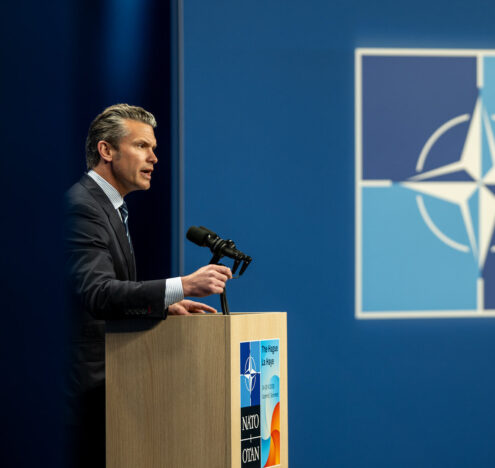In his first major speech as secretary of state, Anthony Blinken pledged that the United States would fight the spread of disinformation because “the truth is the cornerstone of our democracy.”
If truth really is the cornerstone of democracy, it might explain why democracies are having such a hard time at the moment. The information environment is peppered with disinformation, with numerous powerful state actors attempting to undermine their adversaries and advance their own positions with falsities. Disinformation about COVID-19, trade agreements, and rumors of non-existent plans for invasion upended US policy, leaving officials scrambling to respond and minimize the damage.
The United States faces a tremendous challenge when it comes to countering disinformation for a number of reasons. First is the nature of how people interact with disinformation. A false story will be read online by 1,500 people six times faster than a true story, and the lies travel even faster when the story is about politics. Second, the difficulty of combating the spread of lies is only increased by the nature of being an open society. The United States does not have a government-curated internet that can stop stories from being published or censors to prevent individuals going on TV shows watched by millions to spread false claims. For these reasons and others, the United States was targeted with more identified disinformation campaigns than any other country in 2020.
The United States cannot stop disinformation campaigns before they begin, similar to how earthquakes cannot be preempted. But there is significantly more the US government could do to identify nascent disinformation campaigns and effectively counter them, starting with how it uses public diplomacy.
THE POWER OF PUBLIC DIPLOMACY
While public diplomacy does not have a commonly accepted definition, for this context let us say that public diplomacy is the practice of US government officials strategically communicating with foreign publics as well as the American people. This can take many different forms, from a US ambassador making public remarks before an audience, to a team of foreign service officers operating a de facto production company to churn out educational content to a foreign public.
Public diplomacy has immense potential for countering disinformation, but US public diplomacy has not been honed for that purpose. There are two general areas where the practice could be improved: communicating information environments to decisionmakers and improving perceptions of United States policies by foreign publics.
Interpreting the information environments of foreign contexts for policymakers is a critical component of US public diplomacy that is underdeveloped. Foreign service professionals living overseas, who speak the language and interact with local populations, should be a rapid response system to disinformation campaigns. A strategic communication strategy should streamline a process where foreign service professionals listen to what is being said and observe how information is being disseminated, communicate it to policymakers, and develop programs that effectively utilize popular information channels to present truthful and compelling narratives about the United States. Take the Iranian leadership undertaking a disinformation campaign claiming COVID-19 is an American bioweapon as an example. US personnel should be positioned to quickly pick up on the story, use digital mapping to figure out where and how the story is spreading, and design and implement a program, working with locals, to counteract the falsehood, while also advising policymakers in the US how to respond without spreading the disinformation further.
Public diplomacy has immense potential for countering disinformation, but US public diplomacy has not been honed for that purpose.
Policymakers need to understand the viewpoints of foreign publics and how they respond to US actions but in order for that to happen, policymakers need a relationship with the foreign service that allows them to take these contexts into account. One potential fix would be to bring back the US Information Agency, and task it to serve as a centralized communications hub, structuring it to both strategically communicate US policy with foreign publics through various activities as well as facilitate officials and foreign audiences interacting with Americans. Having a body that could identify disinformation campaigns, alert decisionmakers, and coordinate a responsive strategy would be valuable. The components of government that possess such abilities are at present fractured between the US Agency for Global Media, the Global Engagement Center, the National Security Council, and the many US embassies and consulates abroad conducting public diplomacy.
US public diplomacy relies too heavily on a strategy that doesn’t really counteract falsehoods: presenting truthful information. Foreign publics have historically negative views of the United States and those with negative perceptions are more likely to believe in and spread negative, false information about the United States. Having negative views, therefore, primes individuals to believe false stories that comport with their beliefs.
Good public diplomacy cannot “fix” the views people abroad hold of the United States, but it could better communicate the positive intentions of US policy. Research has shown that “positive emotions increase the likelihood of corrective information being accepted and likewise reduce audiences’ vulnerability to disinformation.” Improved perceptions of the United States would act as a preemptive measure to help foreign publics be savvy consumers of information, making them more likely to question whether a story is true, or what the intentions of the actors behind the story might be, before accepting it and sharing it.
IT’S TIME FOR JAZZ!
There are a variety of ways perceptions could be more effectively shaped, and to their credit, public diplomacy practitioners are putting significant effort into thinking about this issue. Mapping social networks and improving the production and dissemination of information to make it more likely to be viewed and shared would be beneficial development. But not all approaches need to be technical.
An idea that has resurfaced is to revive the Jazz Ambassadors program. In the 1950s, the State Department organized a tour of famous American jazz musicians like Louis Armstrong, Duke Ellington, and Dizzy Gillespie through Africa. Given the global popularity of US artists, a modern iteration of such a program that sends artists like Ariana Grande and The Weeknd to places that they would otherwise not tour could make people more likely to hold positive views of the United States. Putting on shows branded as representing the United States, providing artists with full artistic freedom to criticize features of American society, could help foreign publics see the United States as a diverse and liberal country rather than a malicious empire.
Disinformation is not a new problem; it is a proliferating one. US attempts to conduct more effective information operations, using its own propaganda to counter adversary propaganda, will just lead to a more opaque media landscape and a further decline in trust of the words of the US government. A focused and empowered mission to understand the spread of information and improve the view of the United States abroad will make American and foreign publics more resilient in the face of disinformation campaigns that are to come.
Evan Cooper is an associate director of the New American Engagement Initiative at the Atlantic Council.


